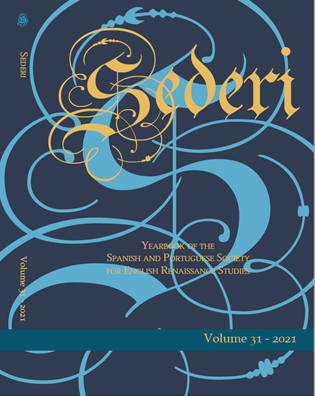English travelers in early modern Cyprus: Piety, commerce and anti-Ottoman sentiment
Palabras clave:
Travel accounts, Cyprus, Holy Land, English pilgrims, English merchants, Ottoman occupation of CyprusResumen
Los viajeros ingleses en Chipre consideraron la isla como última parada obligatoria de la ruta marítima a Tierra Santa. Tras la conquista otomana era casi exclusivamente visitada por los mercaderes ingleses para fundar factorías en las costas del Mediterráneo oriental, atraídos por la afamada fertilidad de Chipre y abundancia de productos para el comercio. En los siglos XVI-XVII los comerciantes ingleses recibían avisos de cautela en relatos de viajes sobre el peligro de considerar la isla un paraíso y “convertirse en turco”. Tales relatos incluyeron abundante información sobre la brutal represión el Gran Turco en las ciudades chipriotas (Guerras de Chipre) e insurrecciones cristianas/anti-otomanas.
Descargas
Descargas
Publicado
Número
Sección
Licencia
The copyright holder of the published contributions is SEDERI.The hardcopy and an open-access version of the journal will be published simultaneously. The issues will be available online in the SEDERI website (http://www.sederi.org/yearbook/) and other repositories that have signed an agreement with SEDERI.
The authors who publish with this journal agree to the following terms:
a) SEDERI retains copyright of the essay.
b) If the author wishes to republish or rewrite the essay for another journal, or include the essay published in SEDERI in their personal repositories, or in any other way, they should contact the editors to obtain permission to do so. This will entail citing SEDERI as the original source and sending the editors a copy of the new version, or the link to the website, in case of online publishing.
The author(s) hereby warrant(s) that:
a) The essay submitted for publication is an original creation and does not infringe any copyright or property right of another journal, author or publisher.
b) The essay submitted for publication has not been previously published, whole or in part, and is not being considered for publication elsewhere.
c) Written permission has been obtained for any material from other sources included in the essay submitted for publication.




